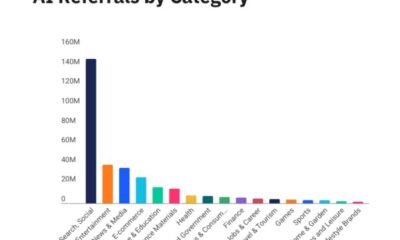Alphabet, faced with unprecedented threats from AI rivals, will be keen to assure investors this week that the company’s own spending on the technology is helping it dig a deeper moat around its search and advertising businesses.
Rivals of the Google parent, including AI startups such as OpenAI and Perplexity, have attracted tens of millions of users to their platforms. They are looking to break Google Chrome’s dominance with their own browsers, even as a U.S. court weighs breaking up the tech company with remedies that may include a forced Chrome sale.
To maintain its grip, Alphabet has rolled out tools such as AI Overviews, which show AI-generated summaries on top of traditional links that have drawn 1.5 billion users per month, and made more Gemini models available to enterprise users. The integration of AI into Google search is key to its advertising appeal, as it offers advertisers the ability to run more effective campaigns and get bigger returns on their dollars. In March, Google added a new AI-only mode to its search. Alphabet, scheduled to report second-quarter results on Wednesday, has also staged a coup, securing rival OpenAI as a customer for its cloud business.
“AI targeting advantages and increasing ad loads in AI Overviews could drive ad performance above traditional search,” BofA Global Research analysts said.
THE CONTEXT
Wall Street has been looking for returns from Big Tech’s AI spending spree that is expected to total $320 billion this year.
Google reassured investors in late April with better-than-expected first-quarter earnings that were powered by AI demand. But OpenAI and Perplexity’s launch of their own browsers has intensified pressure on Google’s search business, which was already under strain from AI chatbots pulling away queries.
“As those (AI) companies deploy their browsers, that’ll take more searches away from Google. But the bigger threat will be when those companies have enough of a user base that they start selling advertising,” said D.A. Davidson analyst Gil Luria.
“It’s only when Google loses advertisers that the revenue is going to be impacted.”
Also, Alphabet’s Waymo, the early U.S. leader in autonomous cabs and often overlooked during earnings, is likely to draw more attention as Elon Musk’s Tesla rolls out a test fleet in Austin, Texas.
THE FUNDAMENTALS
** Alphabet is expected to report a near 11% jump in total revenue for the second quarter, per LSEG data.
** Analysts expect a 7.5% rise in advertising revenue and a 26.2% jump in its cloud computing segment.
** Per-share earnings are expected to be around $2.18, excluding one-off items.
WALL STREET SENTIMENT
** Alphabet shares are largely flat so far this year.
** Stock is among the laggards in the “Magnificent Seven” group of megacap stocks, with Nvidia leading the range with a 28% jump and Tesla at the bottom with a 19% decline.
** Alphabet is rated “buy” on average among 55 brokerages, with a median price target of $203.84.







































